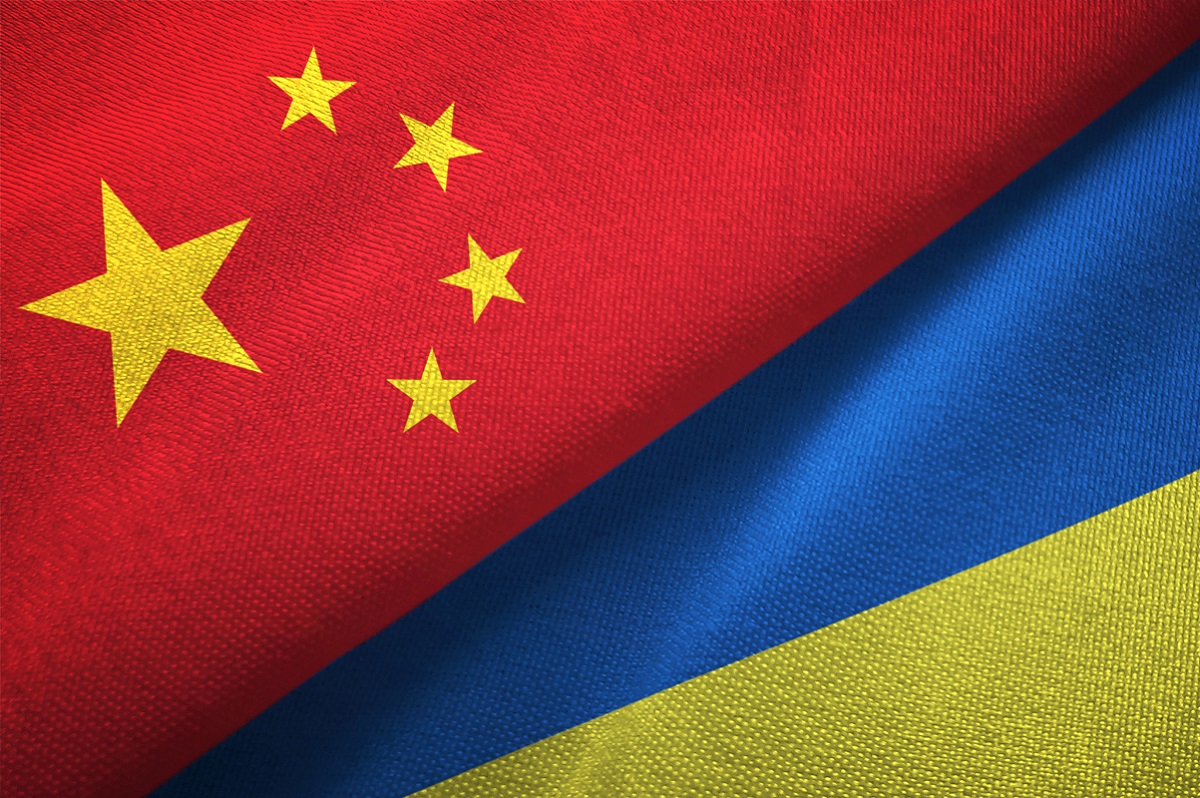On Tuesday, Xinhua news agency reported that the presidents of China and Ukraine exchanged congratulatory messages to celebrate the 30th anniversary of the establishment of diplomatic ties between the two countries. The illustration depicted a cargo of humanitarian aid delivered from China to the Boryspil Airport. Perhaps, this is how relations with Ukraine look like from Beijing’s side now.
Thirty years ago, things were different. China's GNP was sixteen times smaller than that of the U.S. and almost ten times smaller than Japan's one. It was Japan that was considered the main global economic competitor to the United States, and the future regional leader in Asia. Many considered U.S. relations with Japan to become the most important bilateral relations in the world. China was a large and poor state, which, in addition, was also a communist one. In the early 90s, it was believed that communist ideology had no future, and China faced big problems ahead.
On the contrary, Ukraine has been waiting for great success. The acquired statehood, great potential, large and educated population, and the desire for democracy - all of these factors were giving a hope that the country would become a prosperous state after implementing the reforms. However, in 30 years, we are still talking about the reforms in Ukraine, and the country is still one of the poorest states in Europe. At the same time, China has become the largest economy in the world.
In his congratulatory message to Volodymyr Zelenskyy, Xi Jinping pointed out that since the establishment of diplomatic ties 30 years ago, Sino-Ukrainian relations have always maintained a sound and stable development momentum. The two sides enjoy the deepening political mutual trust, fruitful cooperation in various fields, and even closer people-to-people and cultural exchanges, which have improved the well-being of the two peoples. This is more like a diplomatic courtesy.
Political contacts between the two states have not been very active in these thirty years. For instance, the last state visits of the presidents took place in 2011 (visit of the Chinese President to Ukraine) and 2013 (visit of the Ukrainian President to China). At the same time, in 2013, the Treaty of Friendship and Cooperation between Ukraine and China was signed. After the annexation of Crimea in 2014, which led to the consolidation of Ukraine's pro-Western foreign policy, Sino-Ukrainian relations remain in limbo.
The importance of Beijing in the international arena is difficult to ignore: China is becoming an increasingly influential player at both global and regional levels. At the same time, Ukraine's potential for rapprochement with China is quite limited. It can be roughly reduced to the formula "all possible development of trade, but no politics". Perhaps this would have worked thirty years ago, but in modern realities, given China's potential and global aspirations, it will be extremely difficult to stay on track.
China and Ukraine are far enough apart. Perhaps if China did not have its global agenda, it would be even possible to reduce Sino-Ukrainian relations to trade, investment, cultural and humanitarian relations only. However, the current generation of Chinese leadership has relied on global initiatives. The One Belt, One Road Initiative significantly changes the geopolitical mechanics of China, turning the Central and Eastern Europe region into an important area of interest for Beijing. Perhaps this was the most significant change in bilateral relations between Ukraine and China in 30 years.
Ukraine cannot turn a blind eye to the Chinese agenda for a long time. Beijing is rapidly becoming an alternative political model. In 1992, communism seemed to be an anachronism; but today we are witnessing a crisis of liberal democracy. Modified socialism with Chinese specifics - the official doctrine of the Chinese Communist Party - is quite competitive as an ideology. The principles that Beijing offers to the world as the basis of the world order, in particular non-interference and mutual prosperity, can find many adherents.
In addition, China confidently occupies a leading position in the list of Ukraine's trading partners. In 2020, the volume of bilateral trade exceeded $15 billion with a negative balance for Ukraine of 1.2 billion. In 2021, China retained first place, accounting for about 15% of all foreign trade in Ukraine. Ukraine sells ore, grain, metals, wood, and mechanical engineering goods to China; and imports electrical machines, devices, ferrous metals, chemical products, and much more from China. Over thirty years, there has been a well-established structure of bilateral trade, in which Ukraine is a supplier of raw materials for Chinese industry and seeks to expand its presence on the Chinese agricultural market. Another illustration, published by the Xinhua news agency showed a freight train from Wuhan arriving at the station in Kyiv.
For 30 years, China and Ukraine have built quite contradictory relations with many ‘fuses’, unrealized potential, mutual accusations, and scandals. Such relations are highly dependent on the ongoing situation in the international arena.
The message sent to Xi Jinping on the same occasion by Ukrainian President Volodymyr Zelenskyy noted that Ukraine is full of confidence in the broad prospects of mutually beneficial cooperation between the two countries, and stands ready to continuously deepen the traditional friendship between the two peoples, strengthen cooperation in various fields and push forward the Ukraine-China strategic partnership. The Minister of Foreign Affairs of Ukraine said, "... dialectically we are developing relations with China. There is neither a political dialogue with the People's Republic of China nor a loaf of bread. But at the same time, business blooms with bright color..." Contradiction is another crucial interim result of the 30 years-old-partnership between Ukraine and China.


